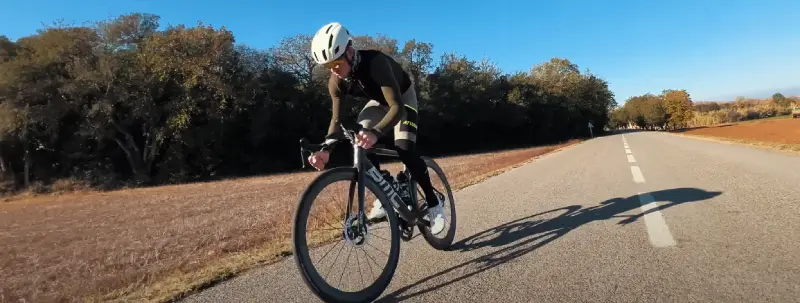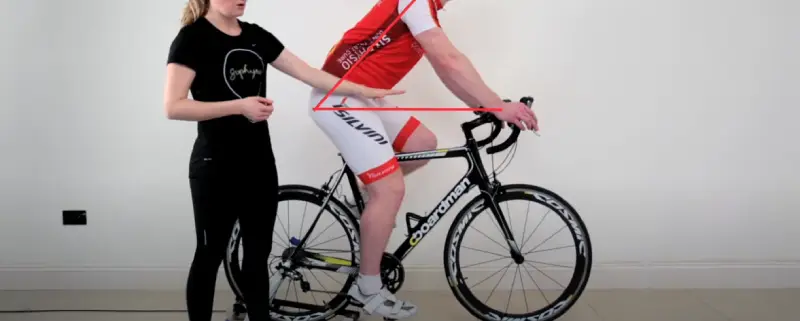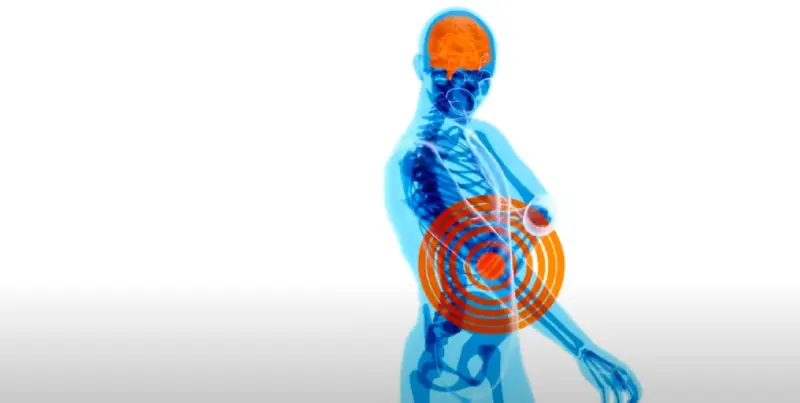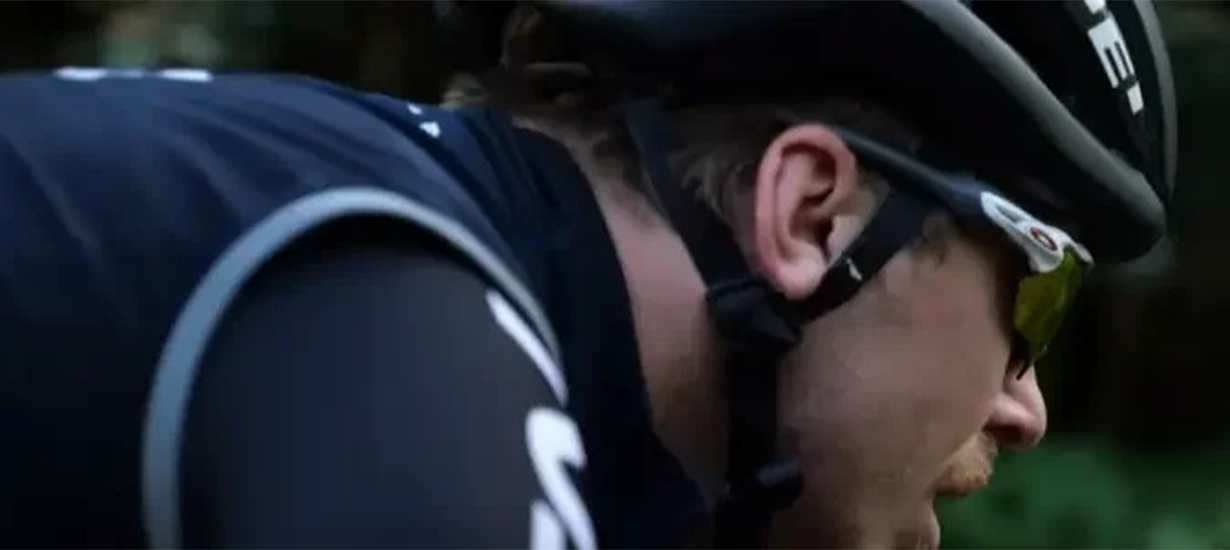Head spinning is a sensation of motion or spinning, distinct from feeling lightheaded. It makes people feel like they are spinning or their world is spinning.
Head spinning after cycling may result from intense physical exertion and dehydration, potentially causing headaches. To prevent this, have a nutritious snack before cycling and stay hydrated. Persistent head-spinning post-cycling could signal an underlying health concern.
This blog post will discuss potential causes, preventative measures, solutions, consultation, and medical advice.
Why Is My Head Spinning After Cycling: 7 Potential Causes

Spinning in the head after cycling can be unsettling. You can prevent this issue in the future by understanding the possible causes behind it. Here are some common causes:
Dehydration
Dehydration happens when your body doesn’t have enough water. During cycling, especially when it’s hot, you can lose fluids through sweat. Here’s how dehydration connects to head spinning:
Dehydration and Dizziness: Insufficient hydration affects blood volume and circulation. Dehydration can cause dizziness and lightheadedness as your blood pressure drops.
Low Blood Sugar
Blood sugar (glucose) gives you energy for physical activities. When you cycle, you burn calories and low blood sugar, which can lead to head spinning:
Hypoglycemia and Dizziness: Low blood sugar levels affect brain function. Symptoms include dizziness, weakness, and confusion.
Overexertion
Sometimes, we push ourselves too hard during cycling. Overexertion can cause various symptoms, including head spinning:
Excessive Effort and Dizziness: When you exceed your fitness level, your body struggles to cope. Oxygen supply to the brain may decrease, causing dizziness.
Vertigo
Vertigo is when you feel like everything is spinning. While cycling, vertigo can happen due to different reasons:
Inner Ear Issues: Problems with the inner ear’s balance system can cause vertigo, which sudden head movements during cycling may exacerbate.
Poor Posture during Cycling
Incorrect posture affects your body’s alignment and blood flow. Poor cycling posture can lead to head spinning:
Neck and Spine Alignment: Leaning too far forward or tilting your head excessively strains neck muscles and disrupts blood flow.
Affecting Health Conditions
Cycling can cause head-spinning due to certain health conditions:
Anemia, Hypotension, or Heart Issues: Conditions like anemia (low iron), blood pressure, or heart problems affect circulation and oxygen delivery.
Proper Gear and Positioning
Your cycling gear and bike setup play a significant role in preventing head spinning:
- Helmet Fit: An ill-fitting helmet can cause discomfort and affect blood flow to the brain.
- Bike Fit: Incorrect bike positioning strains muscles and affects circulation.
7 Solutions For Head Spinning After Cycling

Cycling is a fun and healthy exercise, but sometimes it can make you feel dizzy. By understanding why and how this happens, you can help you enjoy your rides more. Here are some helpful tips and solutions to keep in mind.
Proper Hydration Practices
Staying hydrated is very important while cycling. Dehydration can cause dizziness, so make sure you drink enough water.
- Drink before you start: Have enough water an hour before cycling.
- Carry water with you: Bring a water bottle during your ride.
- Sip regularly: Take small sips of water every 15-20 minutes.
Optimal Nutrition for Cyclists
Eating the right foods gives your body the energy to cycle well without feeling dizzy.
- Balanced meals: Include carbs, proteins, and fats in your diet.
- Pre-ride snack: Eat a light snack like a banana or an energy bar before you start.
- On-the-go snacks: Carry easy-to-eat snacks like nuts or dried fruit for longer rides.
Importance of Correct Cycling Posture
Good posture while cycling helps avoid discomfort and health issues.
- Adjust your bike: Make sure your bike fits your body size.
- Keep your back straight: Maintain a straight but relaxed spine.
- Handlebar height: Set your handlebars at a comfortable height to avoid strain.
Knowing Your Limits and Understanding Overexertion
Pushing too hard can make you feel dizzy. It’s essential to know your limits.
- Start slow: Work your way up to longer and more intense rides.
- Take breaks: Rest regularly to avoid overexertion.
- Listen to your body: Stop riding if you feel dizzy or tired.
Adequate Nutrition Intake Before, During, and After Cycling?
Eating correctly before, during, and after your ride keeps your energy up and prevents dizziness.
- Before riding: Have a meal rich in carbohydrates and proteins.
- During the ride: Snack on energy bars or fruit if you’re cycling for a long time.
- After the ride: Eat protein and carbs to help your muscles recover.
Body Listening and Limit Understanding
Your body tells you when something is wrong. Pay attention to these signals.
- Watch for warning signs: When you feel dizzy, take a break immediately.
- Include rest days: Give your body time to recover by having days off from cycling.
Medical Check-ups to Rule Out Underlying Health Problems
- Yearly exams: Visit your doctor once a year for a complete check-up.
- Consult specialists: See a specialist if you have ongoing dizziness or other issues.
Consultation And Medical Advice About Spinning After Cycling

Even the most experienced cyclists can sometimes feel dizzy after a ride. It is important to know when to seek medical help and how professionals can assist with these symptoms.
When to Consult a Doctor
A professional’s advice is crucial for your well-being. Consider the following scenarios:
- Persistent Symptoms: If you experience prolonged discomfort, pain, or unusual symptoms after cycling, consult a doctor.
- Severe Headaches: Intense headaches that persist beyond a reasonable recovery period warrant medical attention.
- Numbness or Tingling: If you feel numbness, tingling, or weakness in any body part, seek advice promptly.
- Worsening Condition: Consult a healthcare professional if your symptoms worsen despite rest and self-care.
Medical Professional’s Role in Post-Cycling Syndrome
Experts play an important role in assessing and managing post-cycling symptoms. Here’s how they can help:
- Diagnosis: Doctors can identify underlying issues causing discomfort or pain.
- Treatment Recommendations: They’ll recommend appropriate treatments or interventions based on your symptoms.
- Recovery Guidance: Medical professionals guide you on safe recovery, exercise modifications, and return to cycling.
- Monitoring Progress: Regular check-ups ensure your healing progress is on track.
Conclusion
Head spinning after cycling can be caused by various factors, including dehydration, low blood sugar, overexertion, vertigo, poor posture, and underlying health conditions. Staying hydrated, maintaining a balanced diet, using proper cycling gear, and listening to your body are essential to avoid these issues.
Remember, if symptoms persist, consulting a doctor is a smart move. Safe cycling means being aware of your body’s needs and taking proactive steps to ensure a comfortable ride every time. Remember these tips, and you’ll be back on your bike, enjoying the ride without the spin.


